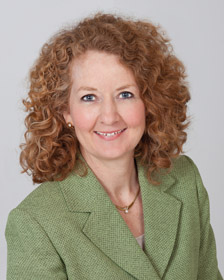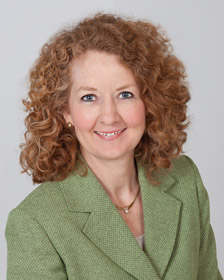 The legislation written by assembly member Marc Levine, AB 121, will extend the designation of Marin County as suburban rather than metropolitan for affordable housing zoning purposes until 2028. As a suburban-designated community, Marin will only be required to meet a housing density requirement of 20 units per acre rather than 30 units per acre.
The legislation written by assembly member Marc Levine, AB 121, will extend the designation of Marin County as suburban rather than metropolitan for affordable housing zoning purposes until 2028. As a suburban-designated community, Marin will only be required to meet a housing density requirement of 20 units per acre rather than 30 units per acre.
The San Rafael Chamber disagrees with this designation and expressed its concern to Assembly member Levine, noting that access to housing is one of the greatest issues facing employers and employees in Marin and that we need more—not less—housing stock. Unfortunately, AB 121 passed the Assembly and Senate and was written into law as a budget trailer to bill SB 106.
California’s housing crisis has been a huge focus at the state level with dozens of housing bills introduced this legislative session. According to the Department of Housing and Community Development estimates, California must build at least 180,000 units a year to keep pace with demand. Marin should not be excluded from doing its part. This bill gives us a pass from building our equitable share and that concerns the chamber. We have a long-standing policy of supporting legislation and reforms that are needed to increase the housing supply, especially in areas where jobs are located. This bill will not help increase housing production. Affordable housing developers did not support this bill and asked the Levine to wait or extend the designation until the report on a previous bill (AB 1537 could be assessed.
We fear Marin will experience a displacement of business to other areas. The number one challenge businesses report is the hiring of new employees to fill vacant positions. Retailers, banks, hotels, grocers and others report they simply cannot recruit enough qualified workers from our own community and if they are lucky enough to do so, these employees do not stay long; finding and accepting another position closer to home— sometimes even at less pay—to avoid an atrocious commute. In the article, “What housing crisis? Last-minute bill would let wealthy Marin County limit home building,” in the Los Angeles Times, Liam Dillon said, “Today, the county’s per capita income of $60,236 is the highest of any county in the state, according to U.S. census figures. But the average renter in Marin County makes just $19.21 an hour and would need to work 77 hours a week to afford a studio apartment at the $1,915-a-month market rate, according to the National Low Income Housing Coalition.
According to a recent UC Davis study as noted in the Transportation Authority of Marin draft strategic vision plan, “Approximately 8 percent of the rental and owner occupied housing in Marin is classified as affordable with approximately 7,610 housing units. At the same time, low-wage jobs account for roughly 23 percent of the workforce or 23,669 jobs. This unmet need for affordable housing is likely to increase the distance driven for low-wage and other Marin workers who live outside of Marin County.” By not allowing a higher density in Marin, more workers are forced to commute from outside the county and for longer distances. According to a 2010 Metropolitan Transportation Commission report, “Marin residents who work in the county drive approximately 17 miles per day, significantly less than non-resident workers who drive approximately 49 miles per day.” This is having a negative effect. Employers are reporting that employees are missing early morning meetings because they are stuck in traffic, and leaving early to beat the traffic. In addition, they don’t volunteer for weekend community service projects because of the commute, their stress levels are increasing since they’re exhausted when they finally arrive at work and their quality of life at home is impacted. If our workforce lived where they work, we would begin to create a greater sense of community. AB 121 is a very exclusionary bill.
We’re not creating a sustainable economy in Marin, and putting our economic future at risk. As our population ages and retires, companies will not be able to fill the positions with our younger workforce because they simply cannot afford to live here. The chamber is concerned that companies in the county will be forced to relocate where the workers live. Access to workforce housing now is a necessity for the economic future of Marin.
 The San Rafael Chamber will continue to fight for the availability of affordable workforce housing in Marin County. We will oppose any bill that creates a barrier to more housing for our residents and workers. We will continue to pressure our elected officials to put “teeth” into their housing bills that require our communities to actually build affordable housing units and not just zone for them.
The San Rafael Chamber will continue to fight for the availability of affordable workforce housing in Marin County. We will oppose any bill that creates a barrier to more housing for our residents and workers. We will continue to pressure our elected officials to put “teeth” into their housing bills that require our communities to actually build affordable housing units and not just zone for them.
Joanne Webster is president and chief executive officer of the San Rafael Chamber of Commerce. The chamber is a member-based business advocacy organization, providing a strong voice in support of the economic vitality of the community. Contact Joanne at jwebster@srchamber.com, or visit srchamber.com.




